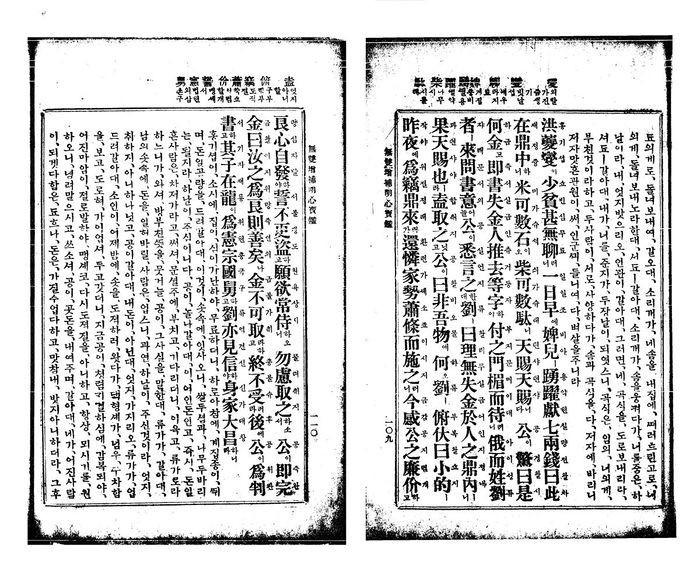"(Translation) 2019 洪夔燮"의 두 판 사이의 차이
장서각위키
| 35번째 줄: | 35번째 줄: | ||
---- | ---- | ||
| − | *Discussion Questions: | + | *Discussion Questions:<br /> |
| − | + | (YO) I checked out about the character 夔 and 耆. They should be different characters (that is, they shouldn't be used interchangeably)--the former meaning a kind of a mythical monster, the latter 'old man' or '60 years of age.' I think I copied and pasted from 동양고전종합DB: http://db.cyberseodang.or.kr/front/alphaList/BookMain.do?mId=m02&sMode=M. It turns out quite a few web sites repeat the same. At this point, I can't find a reason that they can be related, except for they are homophonous (기). | |
| − | |||
| − | |||
[[Category:2019 JSG Summer Hanmun Workshop]] | [[Category:2019 JSG Summer Hanmun Workshop]] | ||
[[Category:Intermediate Training Group]] | [[Category:Intermediate Training Group]] | ||
2019년 7월 18일 (목) 19:31 판
| Primary Source | ||
|---|---|---|
 |
Title | |
| English | Hong Kisŏp | |
| Chinese | 洪夔燮 | |
| Korean(RR) | 홍기섭 | |
| Text Details | ||
| Genre | ||
| Type | ||
| Author(s) | 秋適 (Myŏngsim pogam 明心寶鑑) | |
| Year | 13~14C | |
| Source | ||
| Key Concepts | ||
| Translation Info | ||
| Translator(s) | Participants of 2019 JSG Summer Hanmun Workshop (Intermediate Training Group) | |
| Editor(s) | ||
| Year | 2019 | |
Original Script
洪公耆燮,少貧甚無聊。一日朝,婢兒踊躍獻七兩錢,曰此在鼎中,米可數石,柴可數馱,天賜天賜。公驚曰,是何金,卽書失金人推去等字,付之門楣而待。俄而姓劉者來問書意,公悉言之,劉曰理無失金於人之鼎內,果天賜也,盍取之。公曰非吾物何,劉俯伏曰,小的昨夜爲窃鼎來,還憐家勢蕭條而施之,今感公之廉价,良心自發,誓不更盜,願欲常侍,勿慮取之。公卽還金曰,汝之爲良則善矣。金不可取,終不受。後公爲判書,其子在龍,爲憲宗國舅,劉亦見信,身家大昌。《明心寶鑑.廉義篇》
Translation
Student Translation : Write your name
abcd
- Discussion Questions:
(YO) I checked out about the character 夔 and 耆. They should be different characters (that is, they shouldn't be used interchangeably)--the former meaning a kind of a mythical monster, the latter 'old man' or '60 years of age.' I think I copied and pasted from 동양고전종합DB: http://db.cyberseodang.or.kr/front/alphaList/BookMain.do?mId=m02&sMode=M. It turns out quite a few web sites repeat the same. At this point, I can't find a reason that they can be related, except for they are homophonous (기).